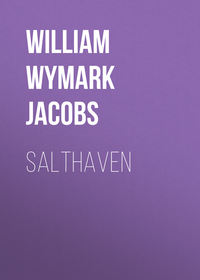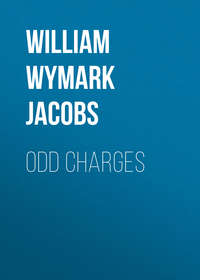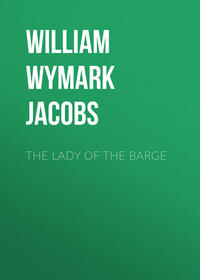 полная версия
полная версияDialstone Lane, Complete
"Well, if you're lost on a cruise, I shall know where to look for you," said Mr. Tredgold. "But I don't think the captain ought to put such ideas into your head."
Mr. Chalk looked bewildered. Then he scratched his left whisker with the stem of his churchwarden pipe and looked severely over at Mr. Tredgold.
"I don't think you ought to talk that way before ladies," he said, primly. "Of course, I know you're only in joke, but there's some people can't see jokes as quick as others and they might get a wrong idea of you."
"What part did you think of going to for your cruise?" interposed Captain Bowers.
"There's nothing settled yet," said Mr. Chalk; "it's just an idea, that's all. I was talking to your father the other day," he added, turning to Mr. Tredgold; "just sounding him, so to speak."
"You take him," said that dutiful son, briskly. "It would do him a world of good; me, too."
"He said he couldn't afford either the time or the money," said Mr. Chalk. "The thing to do would be to combine business with pleasure—to take a yacht and find a sunken galleon loaded with gold pieces. I've heard of such things being done."
"I've heard of it," said the captain, nodding.
"Bottom of the ocean must be paved with them in places," said Mr. Tredgold, rising, and following Miss Drewitt, who had gone into the garden to plant seeds.
Mr. Chalk refilled his pipe and, accepting a match from the captain, smoked slowly. His gaze was fixed on the window, but instead of Dialstone Lane he saw tumbling blue seas and islets far away.
"That's something you've never come across, I suppose, Captain Bowers?" he remarked at last.
"No," said the other.
Mr. Chalk, with a vain attempt to conceal his disappointment, smoked on for some time in silence. The blue seas disappeared, and he saw instead the brass knocker of the house opposite.
"Nor any other kind of craft with treasure aboard, I suppose?" he suggested, at last.
The captain put his hands on his knees and stared at the floor. "No," he said, slowly, "I can't call to mind any craft; but it's odd that you should have got on this subject with me."
Mr. Chalk laid his pipe carefully on the table.
"Why?" he inquired.
"Well," said the captain, with a short laugh, "it is odd, that's all."
Mr. Chalk fidgeted with the stem of his pipe. "You know of sunken treasure somewhere?" he said, eagerly.
The captain smiled and shook his head; the other watched him narrowly.
"You know of some treasure?" he said, with conviction.
"Not what you could call sunken," said the captain, driven to bay.
Mr. Chalk's pale-blue eyes opened to their fullest extent. "Ingots?" he queried.
The other shook his head. "It's a secret," he remarked; "we won't talk about it."
"Yes, of course, naturally, I don't expect you to tell me where it is," said Mr. Chalk, "but I thought it might be interesting to hear about, that's all."
"It's buried," said the captain, after a long pause. "I don't know that there's any harm in telling you that; buried in a small island in the South Pacific."
"Have you seen it?" inquired Mr. Chalk.
"I buried it," rejoined the other.
Mr. Chalk sank back in his chair and regarded him with awestruck attention; Captain Bowers, slowly ramming home a charge of tobacco with his thumb, smiled quietly.
"Buried it," he repeated, musingly, "with the blade of an oar for a spade. It was a long job, but it's six foot down and the dead man it belonged to atop of it."
The pipe fell from the listener's fingers and smashed unheeded on the floor.
"You ought to make a book of it," he said at last.
The captain shook his head. "I haven't got the gift of story-telling," he said, simply. "Besides, you can understand I don't want it noised about. People might bother me."
He leaned back in his chair and bunched his beard in his hand; the other, watching him closely, saw that his thoughts were busy with some scene in his stirring past.
"Not a friend of yours, I hope?" said Mr. Chalk, at last.
"Who?" inquired the captain, starting from his reverie.
"The dead man atop of the treasure," replied the other.
"No," said the captain, briefly.
"Is it worth much?" asked Mr. Chalk.
"Roughly speaking, about half a million," responded the captain, calmly.
Mr. Chalk rose and walked up and down the room. His eyes were bright and his face pinker than usual.
"Why don't you get it?" he demanded, at last, pausing in front of his host.
"Why, it ain't mine," said the captain, staring. "D'ye think I'm a thief?"
Mr. Chalk stared in his turn. "But who does it belong to, then?" he inquired.
"I don't know," replied the captain. "All I know is, it isn't mine, and that's enough for me. Whether it was rightly come by I don't know. There it is, and there it'll stay till the crack of doom."
"Don't you know any of his relations or friends?" persisted the other.
"I know nothing of him except his name," said the captain, "and I doubt if even that was his right one. Don Silvio he called himself—a Spaniard. It's over ten years ago since it happened. My ship had been bought by a firm in Sydney, and while I was waiting out there I went for a little run on a schooner among the islands. This Don Silvio was aboard of her as a passenger. She went to pieces in a gale, and we were the only two saved. The others were washed overboard, but we got ashore in the boat, and I thought from the trouble he was taking over his bag that the danger had turned his brain."
"Ah!" said the keenly interested Mr. Chalk.
"He was a sick man aboard ship," continued the captain, "and I soon saw that he hadn't saved his life for long. He saw it, too, and before he died he made me promise that the bag should be buried with him and never disturbed. After I'd promised, he opened the bag and showed me what was in it. It was full of precious stones—diamonds, rubies, and the like; some of them as large as birds' eggs. I can see him now, propped up against the boat and playing with them in the sunlight. They blazed like stars. Half a million he put them at, or more."
"What good could they be to him when he was dead?" inquired the listener.
Captain Bowers shook his head. "That was his business, not mine," he replied. "It was nothing to do with me. When he died I dug a grave for him, as I told you, with a bit of a broken oar, and laid him and the bag together. A month afterwards I was taken off by a passing schooner and landed safe at Sydney."
Mr. Chalk stopped, and mechanically picking up the pieces of his pipe placed them on the table.
"Suppose that you had heard afterwards that the things had been stolen?" he remarked.
"If I had, then I should have given information, I think," said the other. "It all depends."
"Ah! but how could you have found them again?" inquired Mr. Chalk, with the air of one propounding a poser.
"With my map," said the captain, slowly. "Before I left I made a map of the island and got its position from the schooner that picked me up; but I never heard a word from that day to this."
"Could you find them now?" said Mr. Chalk.
"Why not?" said the captain, with a short laugh. "The island hasn't run away."
He rose as he spoke and, tossing the fragments of his visitor's pipe into the fireplace, invited him to take a turn in the garden. Mr. Chalk, after a feeble attempt to discuss the matter further, reluctantly obeyed.
CHAPTER III
Mr. Chalk, with his mind full of the story he had just heard, walked homewards like a man in a dream. The air was fragrant with spring and the scent of lilac revived memories almost forgotten. It took him back forty years, and showed him a small boy treading the same road, passing the same houses. Nothing had changed so much as the small boy himself; nothing had been so unlike the life he had pictured as the life he had led. Even the blamelessness of the latter yielded no comfort; it savoured of a lack of spirit.
His mind was still busy with the past when he reached home. Mrs. Chalk, a woman of imposing appearance, who was sitting by the window at needlework, looked up sharply at his entrance. Before she spoke he had a dim idea that she was excited about something.
"I've got her," she said, triumphantly.
"Oh!" said Mr. Chalk.
"She didn't want to come at first," said Mrs. Chalk; "she'd half promised to go to Mrs. Morris. Mrs. Morris had heard of her through Harris, the grocer, and he only knew she was out of a place by accident. He—"
Her words fell on deaf ears. Mr. Chalk, gazing through the window, heard without comprehending a long account of the capture of a new housemaid, which, slightly altered as to name and place, would have passed muster as an exciting contest between a skilful angler and a particularly sulky salmon. Mrs. Chalk, noticing his inattention at last, pulled up sharply.
"You're not listening!" she cried.
"Yes, I am; go on, my dear," said Mr. Chalk.
"What did I say she left her last place for, then?" demanded the lady.
Mr. Chalk started. He had been conscious of his wife's voice, and that was all. "You said you were not surprised at her leaving," he replied, slowly; "the only wonder to you was that a decent girl should have stayed there so long."
Mrs. Chalk started and bit her lip. "Yes," she said, slowly. "Ye-es. Go on; anything else?"
"You said the house wanted cleaning from top to bottom," said the painstaking Mr. Chalk.
"Go on," said his wife, in a smothered voice. "What else did I say?"
"Said you pitied the husband," continued Mr. Chalk, thoughtfully.
Mrs. Chalk rose suddenly and stood over him. Mr. Chalk tried desperately to collect his faculties.
"How dare you?" she gasped. "I've never said such things in my life. Never. And I said that she left because Mr. Wilson, her master, was dead and the family had gone to London. I've never been near the house; so how could I say such things?"
Mr. Chalk remained silent.
"What made you think of such things?" persisted Mrs. Chalk.
Mr. Chalk shook his head; no satisfactory reply was possible. "My thoughts were far away," he said, at last.
His wife bridled and said, "Oh, indeed!" Mr. Chalk's mother, dead some ten years before, had taken a strange pride—possibly as a protest against her only son's appearance—in hinting darkly at a stormy and chequered past. Pressed for details she became more mysterious still, and, saying that "she knew what she knew," declined to be deprived of the knowledge under any consideration. She also informed her daughter-in-law that "what the eye don't see the heart don't grieve," and that it was better to "let bygones be bygones," usually winding up with the advice to the younger woman to keep her eye on Mr. Chalk without letting him see it.
"Peckham Rye is a long way off, certainly," added the indignant Mrs. Chalk, after a pause. "It's a pity you haven't got something better to think of, at your time of life, too."
Mr. Chalk flushed. Peckham Rye was one of the nuisances bequeathed by his mother.
"I was thinking of the sea," he said, loftily.
Mrs. Chalk pounced. "Oh, Yarmouth," she said, with withering scorn.
Mr. Chalk flushed deeper than before. "I wasn't thinking of such things," he declared.
"What things?" said his wife, swiftly.
"The—the things you're alluding to," said the harassed Mr. Chalk.
"Ah!" said his wife, with a toss of her head. "Why you should get red in the face and confused when I say Peckham Rye and Yarmouth are a long way off is best known to yourself. It's very funny that the moment either of these places is mentioned you get uncomfortable. People might read a geography-book out loud in my presence and it wouldn't affect me."
She swept out of the room, and Mr. Chalk's thoughts, excited by the magic word geography, went back to the island again. The half-forgotten dreams of his youth appeared to be materializing. Sleepy Binchester ended for him at Dialstone Lane, and once inside the captain's room the enchanted world beyond the seas was spread before his eager gaze. The captain, amused at first at his enthusiasm, began to get weary of the subject of the island, and so far the visitor had begged in vain for a glimpse of the map.
His enthusiasm became contagious. Prudence, entering one evening in the middle of a conversation, heard sufficient to induce her to ask for more, and the captain, not without some reluctance and several promptings from Mr. Chalk when he showed signs of omitting vital points, related the story. Edward Tredgold heard it, and, judging by the frequency of his visits, was almost as interested as Mr. Chalk.
"I can't see that there could be any harm in just looking at the map," said Mr. Chalk, one evening. "You could keep your thumb on any part you wanted to."
"Then we should know where to dig," urged Mr. Tredgold. "Properly managed there ought to be a fortune in your innocence, Chalk."
Mr. Chalk eyed him fixedly. "Seeing that the latitude and longitude and all the directions are written on the back," he observed, with cold dignity, "I don't see the force of your remarks."
"Well, in that case, why not show it to Mr. Chalk, uncle?" said Prudence, charitably.
Captain Bowers began to show signs of annoyance. "Well, my dear," he began, slowly.
"Then Miss Drewitt could see it too," said Mr. Tredgold, blandly.
Miss Drewitt reddened with indignation. "I could see it any time I wished," she said, sharply.
"Well, wish now," entreated Mr. Tredgold. "As a matter of fact, I'm dying with curiosity myself. Bring it out and make it crackle, captain; it's a bank-note for half a million."
The captain shook his head and a slight frown marred his usually amiable features. He got up and, turning his back on them, filled his pipe from a jar on the mantelpiece.
"You never will see it, Chalk," said Edward Tredgold, in tones of much conviction. "I'll bet you two to one in golden sovereigns that you'll sink into your honoured family vault with your justifiable curiosity still unsatisfied. And I shouldn't wonder if your perturbed spirit walks the captain's bedroom afterwards."
Miss Drewitt looked up and eyed the speaker with scornful comprehension. "Take the bet, Mr. Chalk," she said, slowly.
Mr. Chalk turned in hopeful amaze; then he leaned over and shook hands solemnly with Mr. Tredgold. "I'll take the bet," he said.
"Uncle will show it to you to please me," announced Prudence, in a clear voice. "Won't you, uncle?"
The captain turned and took the matches from the table. "Certainly, my dear, if I can find it," he said, in a hesitating fashion. "But I'm afraid I've mislaid it. I haven't seen it since I unpacked."
"Mislaid it!" ejaculated the startled Mr. Chalk. "Good heavens! Suppose somebody should find it? What about your word to Don Silvio then?"
"I've got it somewhere," said the captain, brusquely; "I'll have a hunt for it. All the same, I don't know that it's quite fair to interfere in a bet."
Miss Drewitt waved the objection away, remarking that people who made bets must risk losing their money.
"I'll begin to save up," said Mr. Tredgold, with a lightness which was not lost upon Miss Drewitt. "The captain has got to find it before you can see it, Chalk."
Mr. Chalk, with a satisfied smile, said that when the captain promised a thing it was as good as done.
For the next few days he waited patiently, and, ransacking an old lumber-room, divided his time pretty equally between a volume of "Captain Cook's Voyages" that he found there and "Famous Shipwrecks." By this means and the exercise of great self-control he ceased from troubling Dialstone Lane for a week. Even then it was Edward Tredgold who took him there. The latter was in high spirits, and in explanation informed the company, with a cheerful smile, that he had saved five and ninepence, and was forming habits which bade fair to make him a rich man in time.
"Don't you be in too much of a hurry to find that map, captain," he said.
"It's found," said Miss Drewitt, with a little note of triumph in her voice.
"Found it this morning," said Captain Bowers. He crossed over to an oak bureau which stood in the corner by the fireplace, and taking a paper from a pigeon-hole slowly unfolded it and spread it on the table before the delighted Mr. Chalk. Miss Drewitt and Edward Tredgold advanced to the table and eyed it curiously.
The map, which was drawn in lead-pencil, was on a piece of ruled paper, yellow with age and cracked in the folds. The island was in shape a rough oval, the coast-line being broken by small bays and headlands. Mr. Chalk eyed it with all the fervour usually bestowed on a holy relic, and, breathlessly reading off such terms as "Cape Silvio," "Bowers Bay," and "Mount Lonesome," gazed with breathless interest at the discoverer.
"And is that the grave?" he inquired, in a trembling voice, pointing to a mark in the north-east corner.
The captain removed it with his finger-nail. "No," he said, briefly. "For full details see the other side."
For one moment Mr. Chalk hoped; then his face fell as Captain Bowers, displaying for a fraction of a second the writing on the other side, took up the map and, replacing it in the bureau, turned the key in the lock and with a low laugh resumed his seat. Miss Drewitt, glancing over at Edward Tredgold, saw that he looked very thoughtful.
"You've lost your bet," she said, pointedly.
"I know," was the reply.
His gaiety had vanished and he looked so dejected that Miss Drewitt was reminded of the ruined gambler in a celebrated picture. She tried to quiet her conscience by hoping that it would be a lesson to him. As she watched, Mr. Tredgold dived into his left trouser-pocket and counted out some coins, mostly brown. To these he added a few small pieces of silver gleaned from his waistcoat, and then after a few seconds' moody thought found a few more in the other trouser-pocket.
"Eleven and tenpence," he said, mechanically.
"Any time," said Mr. Chalk, regarding him with awkward surprise. "Any time."
"Give him an I O U," said Captain Bowers, fidgeting.
"Yes, any time," repeated Mr. Chalk; "I'm in no hurry."
"No; I'd sooner pay now and get it over," said the other, still fumbling in his pockets. "As Miss Drewitt says, people who make bets must be prepared to lose; I thought I had more than this."
There was an embarrassing silence, during which Miss Drewitt, who had turned very red, felt strangely uncomfortable. She felt more uncomfortable still when Mr. Tredgold, discovering a bank-note and a little collection of gold coins in another pocket, artlessly expressed his joy at the discovery. The simple-minded captain and Mr. Chalk both experienced a sense of relief; Miss Drewitt sat and simmered in helpless indignation.
"You're careless in money matters, my lad," said the captain, reprovingly.
"I couldn't understand him making all that fuss over a couple o' pounds," said Mr. Chalk, looking round. "He's very free, as a rule; too free."
Mr. Tredgold, sitting grave and silent, made no reply to these charges, and the girl was the only one to notice a faint twitching at the corners of his mouth. She saw it distinctly, despite the fact that her clear, grey eyes were fixed dreamily on a spot some distance above his head.
She sat in her room upstairs after the visitors had gone, thinking it over. The light was fading fast, and as she sat at the open window the remembrance of Mr. Tredgold's conduct helped to mar one of the most perfect evenings she had ever known.
Downstairs the captain was also thinking. Dialstone Lane was in shadow, and already one or two lamps were lit behind drawn blinds. A little chatter of voices at the end of the lane floated in at the open window, mellowed by distance. His pipe was out, and he rose to search in the gloom for a match, when another murmur of voices reached his ears from the kitchen. He stood still and listened intently. To put matters beyond all doubt, the shrill laugh of a girl was plainly audible. The captain's face hardened, and, crossing to the fireplace, he rang the bell.
"Yessir," said Joseph, as he appeared and closed the door carefully behind him.
"What are you talking to yourself in that absurd manner for?" inquired the captain with great dignity.
"Me, sir?" said Mr. Tasker, feebly.
"Yes, you," repeated the captain, noticing with surprise that the door was slowly opening.
Mr. Tasker gazed at him in a troubled fashion, but made no reply.
"I won't have it," said the captain, sternly, with a side glance at the door. "If you want to talk to yourself go outside and do it. I never heard such a laugh. What did you do it for? It was like an old woman with a bad cold."
He smiled grimly in the darkness, and then started slightly as a cough, a hostile, challenging cough, sounded from the kitchen. Before he could speak the cough ceased and a thin voice broke carelessly into song.
"WHAT!" roared the captain, in well-feigned astonishment. "Do you mean to tell me you've got somebody in my pantry? Go and get me those rules and regulations."
Mr. Tasker backed out, and the captain smiled again as he heard a whispered discussion. Then a voice clear and distinct took command. "I'll take'em in myself, I tell you," it said. "I'll rules and regulations him."
The smile faded from the captain's face, and he gazed in perplexity at the door as a strange young woman bounced into the room.
"Here's your rules and regulations," said the intruder, in a somewhat shrewish voice. "You'd better light the lamp if you want to see'em; though the spelling ain't so noticeable in the dark."
The impressiveness of the captain's gaze was wasted in the darkness. For a moment he hesitated, and then, with the dignity of a man whose spelling has nothing to conceal, struck a match and lit the lamp. The lamp lighted, he lowered the blind, and then seating himself by the window turned with a majestic air to a thin slip of a girl with tow-coloured hair, who stood by the door.
"Who are you?" he demanded, gruffly.
"My name's Vickers," said the young lady. "Selina Vickers. I heard all what you've been saying to my Joseph, but, thank goodness, I can take my own part. I don't want nobody to fight my battles for me. If you've got anything to say about my voice you can say it to my face."
Captain Bowers sat back and regarded her with impressive dignity. Miss Vickers met his gaze calmly and, with a pair of unwinking green eyes, stared him down.
"What were you doing in my pantry?" demanded the captain, at last.
"I was in your kitchen," replied Miss Vickers, with scornful emphasis on the last word, "to see my young man."
"Well, I can't have you there," said the captain, with a mildness that surprised himself. "One of my rules—"
Miss Vickers interposed. "I've read'em all over and over again," she said, impatiently.
"If it occurs again," said the other, "I shall have to speak to Joseph very seriously about it."
"Talk to me," said Miss Vickers, sharply; "that's what I come in for. I can talk to you better than what Joseph can, I know. What harm do you think I was doing your old kitchen? Don't you try and interfere between me and my Joseph, because I won't have it. You're not married yourself, and you don't want other people to be. How do you suppose the world would get on if everybody was like you?"
Captain Bowers regarded her in open-eyed perplexity. The door leading to the garden had just closed behind the valiant Joseph, and he stared with growing uneasiness at the slight figure of Miss Vickers as it stood poised for further oratorical efforts. Before he could speak she gave her lips a rapid lick and started again.
"You're one of those people that don't like to see others happy, that's what you are," she said, rapidly. "I wasn't hurting your kitchen, and as to talking and laughing there—what do you think my tongue was given to me for? Show? P'r'aps if you'd been doing a day's hard work you'd—"
"Look here, my girl—" began the captain, desperately.
"Don't you my girl me, please," interrupted Miss Vickers. "I'm not your girl, thank goodness. If I was you'd be a bit different, I can tell you. If you had any girls you'd know better than to try and come between them and their young men. Besides, they wouldn't let you. When a girl's got a young man—"
The captain rose and went through the form of ringing the bell. Miss Vickers watched him calmly.









